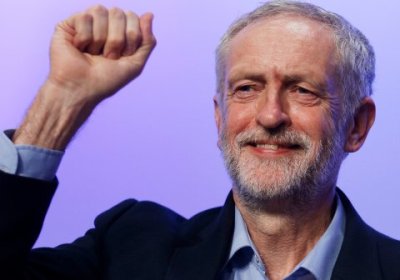Omnia Sunt Communia: On the Commons & the Transformation to Postcapitalism
By Massimo De Angelis
Zed, 2017
456 pp, $20.76
Massimo De Angelis, an Italian academic based at the University of East London, has produced a thought-provoking guide to “commons” as a means of transforming and ultimately displacing capitalism. Commons, referring to collective forms of ownership, are increasingly seen as a way of moving beyond both oppressive states and exploitative markets.




 Jeremy Corbyn's success is one sign, and perhaps the most dramatic, of a wider movement challenging the British establishment.
Jeremy Corbyn's election as Labour Party leader has already had a dramatic effect on British politics.
All of us on the left in Britain need to ask how we can support him — and consider what the long term implications of his success may be. Those outside Britain, especially on the green left, need to ask whether there are lessons that can be learned.
Jeremy Corbyn's success is one sign, and perhaps the most dramatic, of a wider movement challenging the British establishment.
Jeremy Corbyn's election as Labour Party leader has already had a dramatic effect on British politics.
All of us on the left in Britain need to ask how we can support him — and consider what the long term implications of his success may be. Those outside Britain, especially on the green left, need to ask whether there are lessons that can be learned.
 Britain's May 7 general elections, in which the Conservative Party won an outright majority, produced a couple of silver linings on a very large black cloud.
One was the success of the Green Party of England and Wales. While the party did not sweep into Westminster, it made progress politically and in terms of votes.
Britain's May 7 general elections, in which the Conservative Party won an outright majority, produced a couple of silver linings on a very large black cloud.
One was the success of the Green Party of England and Wales. While the party did not sweep into Westminster, it made progress politically and in terms of votes.



